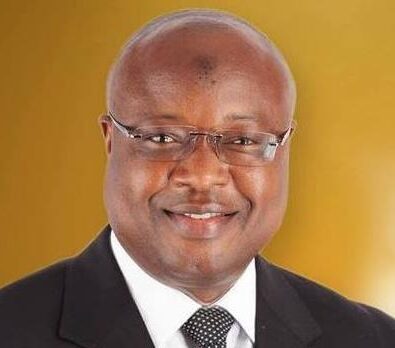In the world of politics, promises are easy to make but challenging to fulfill. The journey from campaign trail rhetoric to actual governance is fraught with obstacles, compromises, and realities that often betray the grand visions shared by politicians in the pursuit of votes. For the people, however, politics is not about grandiose promises—it is about delivery. Sierra Leone, a country with a tumultuous history and a population yearning for development, needs its leaders to step up and deliver on their promises. President Julius Maada Bio, now well into his second term, finds himself at this critical juncture where the expectations of Sierra Leoneans must be met with tangible results. Politics is not about promises anymore; Bio must now deliver.
Promises form the backbone of any political campaign. They are the instruments through which politicians connect with voters, projecting a vision of the future and convincing the electorate that they have the competence to bring about change. In many ways, promises create hope, especially in a country like Sierra Leone, where the need for development, transparency, and prosperity is urgent.
When President Bio took office in 2018, he was seen as a beacon of hope for many Sierra Leoneans. His campaign was built on a promise of a “New Direction,” a break from the past decades of corruption, underdevelopment, and poor governance that had crippled the country. Among his key pledges were the provision of free quality education, the revitalization of the economy, the fight against corruption, and the improvement of healthcare.
Five years into his presidency, however, the shine of these promises has faded, and the demands of leadership have revealed the fragility of political promises when they are not backed by action. The current political climate is rife with dissatisfaction, and the public’s patience is wearing thin. Bio’s administration is now faced with the stark reality that while promises can win elections, delivery is what sustains trust and builds legacies.
One of Bio’s most celebrated initiatives was his promise to provide free quality education for all Sierra Leonean children. The Free Quality Education (FQE) initiative was a bold and commendable move, especially in a country where illiteracy and lack of access to education had been major impediments to progress. Bio’s vision was to equip the next generation with the tools to transform the nation and compete on a global stage.
However, the implementation of this policy has been far from perfect. While enrollment numbers have increased dramatically, the quality of education provided under the FQE initiative has come under scrutiny. Many schools, particularly in rural areas, remain overcrowded, underfunded, and understaffed. Teachers are often poorly trained and inadequately compensated, leading to low morale and diminished educational outcomes.
Furthermore, the infrastructure necessary to support this ambitious program is still lacking. Many schools are without basic facilities such as libraries, laboratories, and proper sanitation. The government’s initial excitement over increased student numbers has not been matched with corresponding investments in educational infrastructure and resources. As a result, the quality of education in many parts of the country remains subpar, and the gap between Bio’s promises and delivery is widening.
Education is not just about getting children into classrooms; it is about providing them with the skills and knowledge they need to thrive in the modern world. Bio must recognize that his administration’s focus must now shift from quantity to quality. If his Free Quality Education program is to leave a lasting impact, the government must invest in improving teacher training, school infrastructure, and educational resources. Without these critical investments, the promise of free quality education will remain just that—a promise unfulfilled.
The economy is another area where President Bio’s promises have yet to fully materialize. Upon taking office, Bio inherited an economy riddled with debt, inflation, and high unemployment. His administration promised to stabilize the economy, create jobs, and reduce the country’s reliance on foreign aid and debt. However, five years on, the Sierra Leonean economy is still struggling.
Inflation has risen significantly, eroding the purchasing power of ordinary Sierra Leoneans. The cost of living has skyrocketed, with food prices, in particular, becoming a major concern for households across the country. The Leone, the national currency, has continued to depreciate, exacerbating the economic hardships faced by the population. Despite efforts to diversify the economy and attract foreign investment, economic growth remains sluggish, and unemployment, especially among the youth, is still alarmingly high.
One of the major challenges that Bio’s administration faces is the disconnect between the promises made and the structural issues that continue to plague the economy. While the government has embarked on ambitious projects, such as road construction and infrastructure development, these initiatives have yet to translate into widespread economic benefits for the majority of Sierra Leoneans. Moreover, the government’s reliance on loans and foreign aid to fund these projects has raised concerns about the country’s rising debt levels.
The delivery deficit in economic management is perhaps one of the most glaring failures of Bio’s administration. For the economy to improve, the government must implement more robust and sustainable policies that address the root causes of Sierra Leone’s economic woes. This includes investing in local industries, promoting entrepreneurship, and ensuring that public funds are used efficiently and transparently. Simply put, Bio must move beyond promises and deliver tangible economic reforms that improve the lives of Sierra Leoneans.
Corruption has long been one of Sierra Leone’s most intractable problems, and Bio’s administration made tackling this issue a central promise of its governance agenda. The establishment of the Anti-Corruption Commission (ACC) and the subsequent high-profile cases against corrupt officials signaled Bio’s intent to crack down on graft. However, corruption remains deeply entrenched in many sectors of government, and the perception that corruption continues unabated has eroded public trust in Bio’s administration.
One of the challenges in fighting corruption is that it is often deeply embedded in the political and administrative systems. While the ACC has achieved some notable successes, the fight against corruption must go beyond prosecuting a few individuals. It requires a comprehensive approach that includes reforms in public procurement, financial management, and the judiciary. Moreover, the government must be willing to confront corruption within its own ranks and ensure that the anti-corruption drive is not seen as a tool for political witch-hunts.
For Bio to deliver on his promise to fight corruption, he must strengthen institutions, promote transparency, and ensure that public officials are held accountable for their actions. This means not only punishing those who engage in corrupt practices but also preventing corruption through better governance, stronger oversight, and a commitment to the rule of law.
Healthcare is another sector where Bio’s promises have fallen short of delivery. Sierra Leone’s healthcare system has long been under-resourced and overstretched, and Bio promised to make significant improvements in this area. His administration pledged to improve access to healthcare, reduce maternal and infant mortality rates, and strengthen the country’s ability to respond to public health emergencies.
However, the COVID-19 pandemic exposed the weaknesses of Sierra Leone’s healthcare system, which remains ill-equipped to handle large-scale health crises. Hospitals and clinics across the country continue to suffer from a lack of medical supplies, inadequate infrastructure, and a shortage of trained healthcare professionals. The maternal mortality rate, one of the highest in the world, remains a pressing issue, and many Sierra Leoneans still struggle to access basic healthcare services.
For Bio to deliver on his healthcare promises, his administration must prioritize investments in healthcare infrastructure, training, and resources. This includes improving the conditions of hospitals and clinics, ensuring that healthcare workers are adequately trained and compensated, and providing access to essential medicines and services. Without these investments, the healthcare system will continue to fail the people it is meant to serve, and Bio’s promises of improved healthcare will remain unfulfilled.
At the heart of President Bio’s governance philosophy was a promise to restore transparency and accountability to government. His administration promised to strengthen democratic institutions, promote the rule of law, and ensure that public resources were used responsibly. However, in recent years, there have been growing concerns about the erosion of democratic principles under Bio’s leadership.
One of the key criticisms leveled against Bio’s administration is its handling of political opposition and dissent. Reports of intimidation, harassment, and the suppression of opposition voices have raised concerns about the state of democracy in Sierra Leone. Furthermore, there have been allegations of the government’s failure to respect the independence of the judiciary and the media, both of which are essential pillars of a functioning democracy.
For Bio to truly deliver on his promise of good governance, he must reaffirm his commitment to democracy, the rule of law, and accountability. This means ensuring that opposition parties are allowed to operate freely, that the judiciary is independent, and that the media is able to function without fear of reprisal. In addition, the government must be transparent in its dealings, providing regular updates on its policies and ensuring that public resources are used for the benefit of the people.
On the international stage, Bio’s administration has made significant efforts to position Sierra Leone as a stable and reliable partner for foreign investment and development assistance. His government has actively courted international donors and investors, promising to create a business-friendly environment and improve governance.
However, international relations are not immune to the gap between promises and delivery. While Bio has been successful in attracting foreign aid and investment, there are concerns about the long-term sustainability of these relationships. Sierra Leone’s growing debt burden, much of it owed to foreign lenders, raises questions about the country’s ability to manage its finances and meet its obligations.
In conclusion, the time for promises has passed, and President Bio’s administration must now focus on tangible delivery. The challenges facing Sierra Leone—from education and healthcare to economic management and corruption—require decisive action and meaningful reform. The people of Sierra Leone have placed their trust in Bio’s leadership, but that trust will only be sustained if the government prioritizes delivering on its commitments. Politics, in its truest form, is about results. If Bio wants to secure a lasting legacy, he must rise to the occasion, move beyond rhetoric, and deliver the progress the nation so desperately needs.













